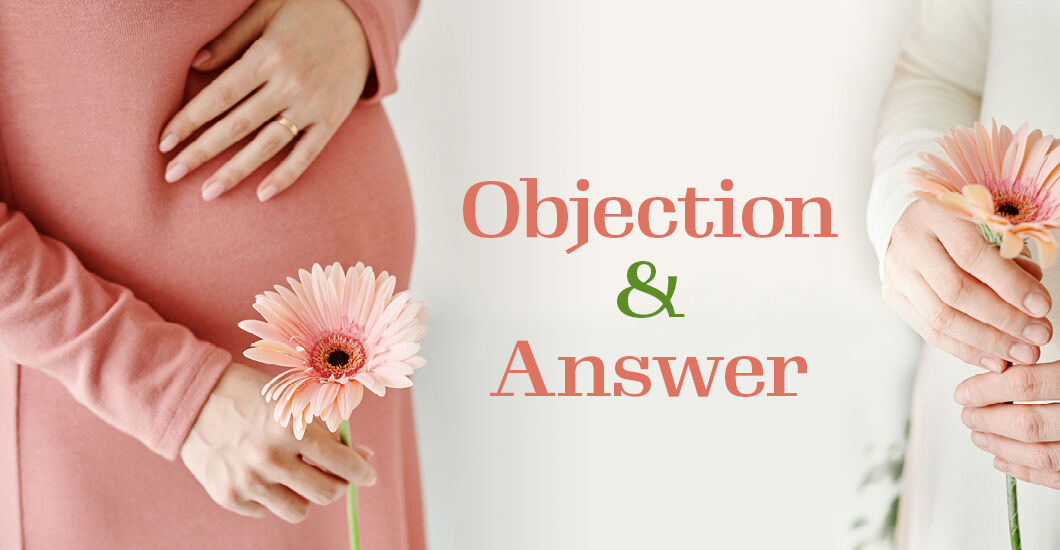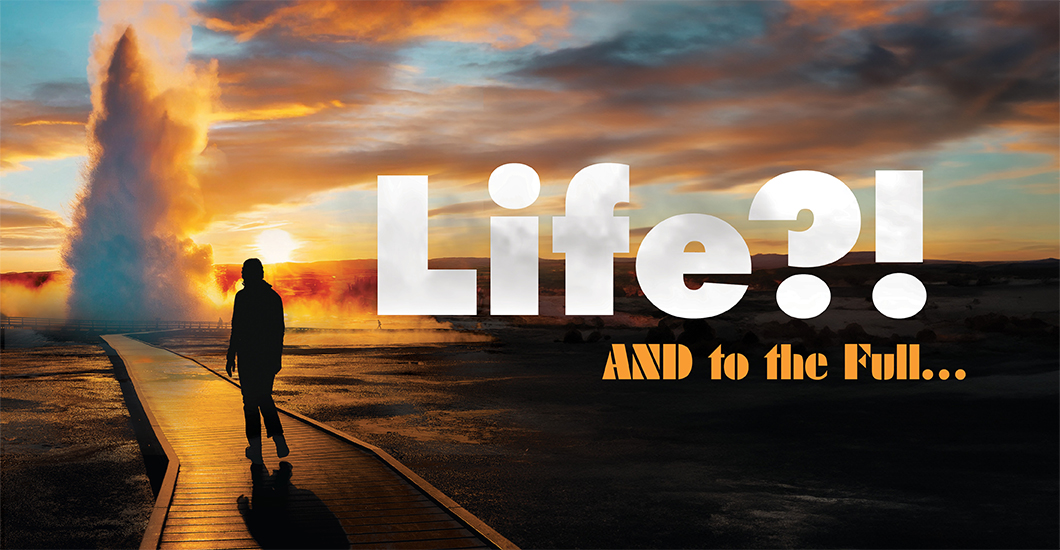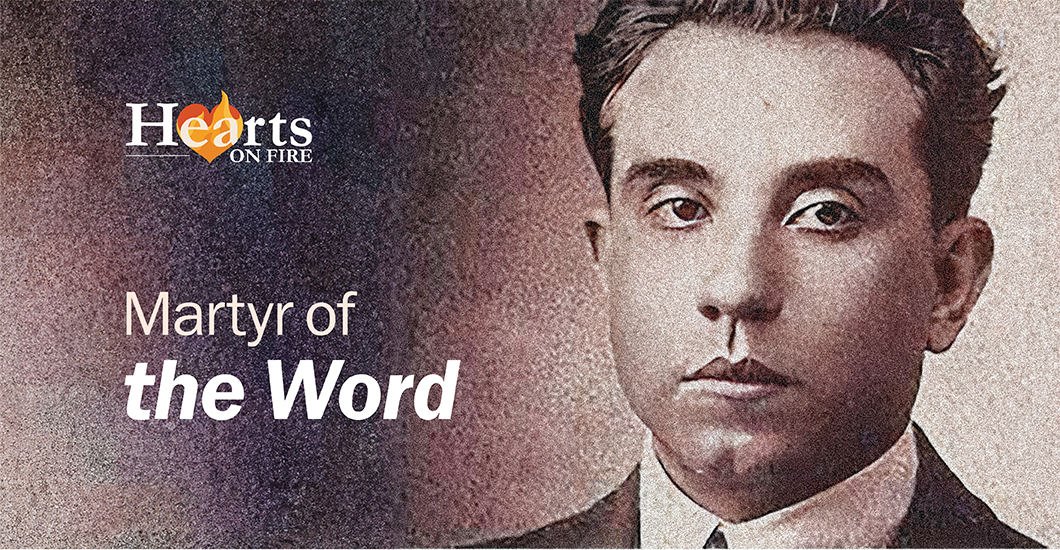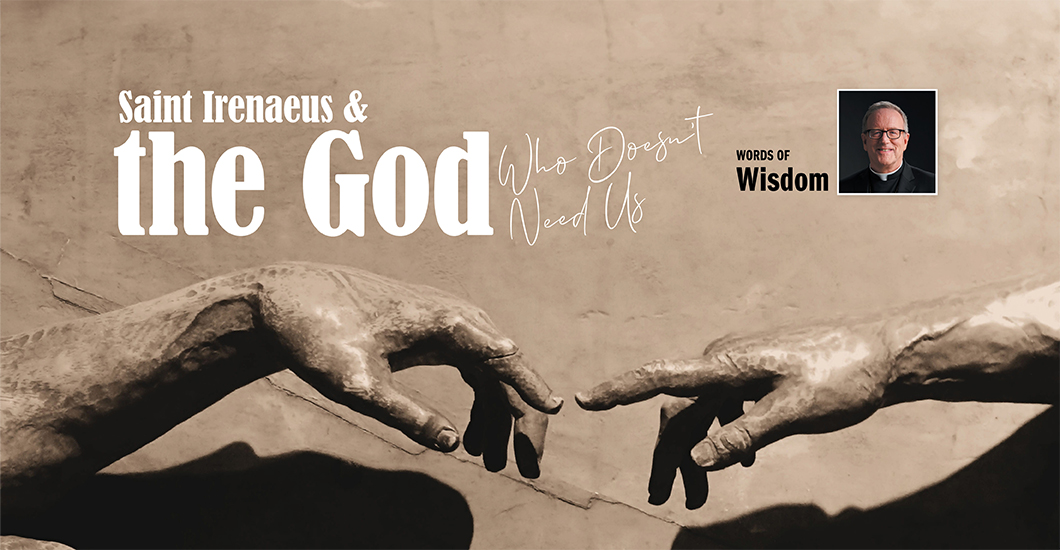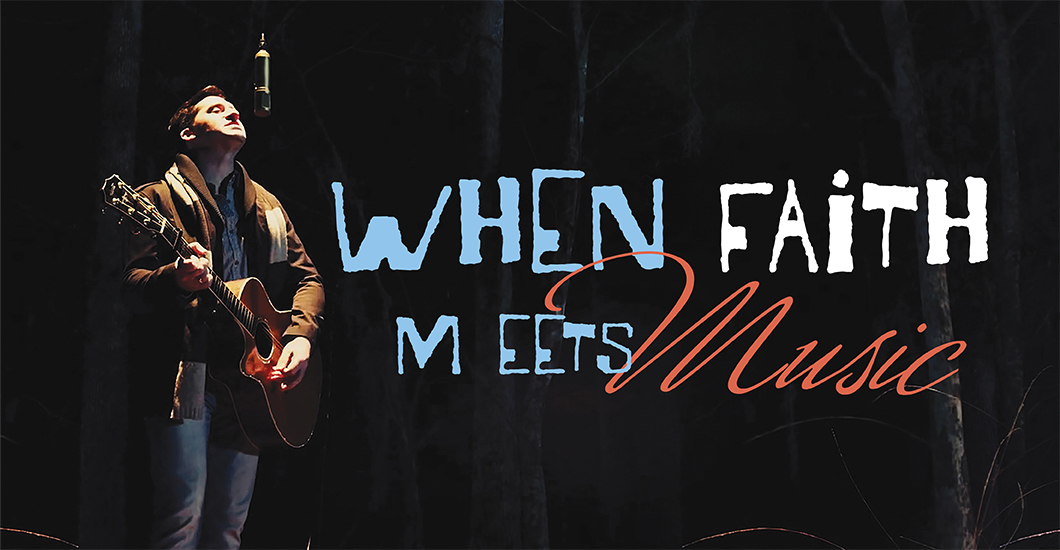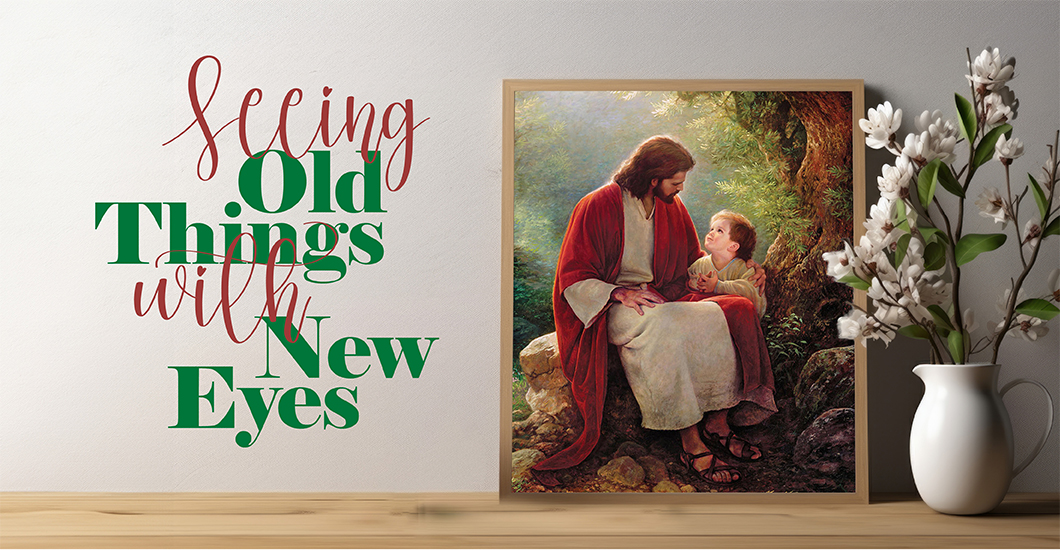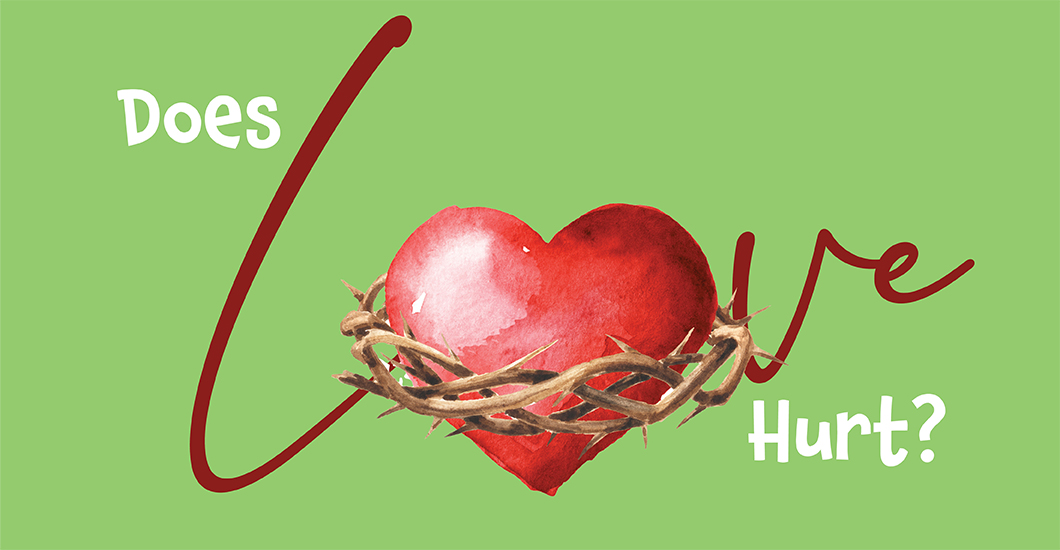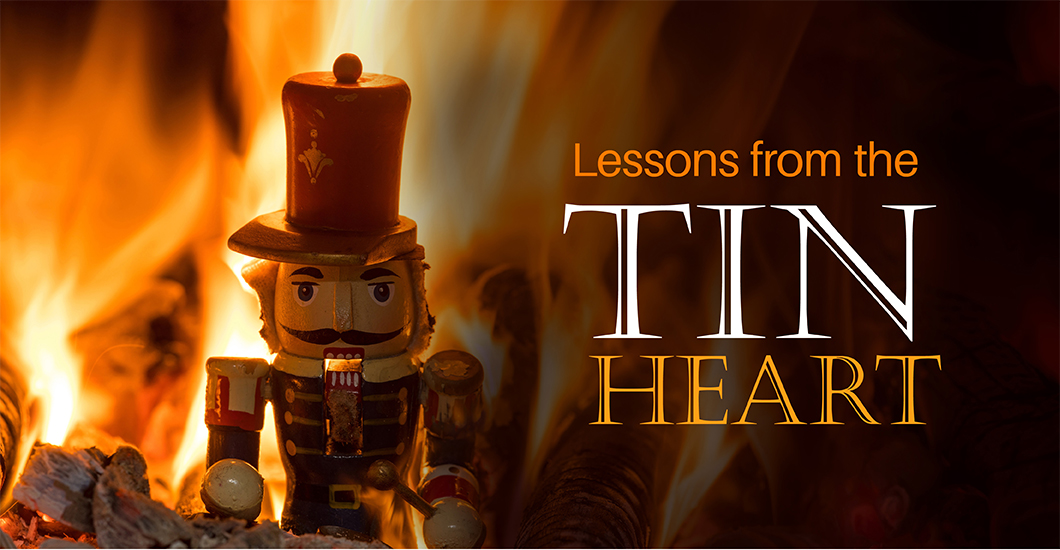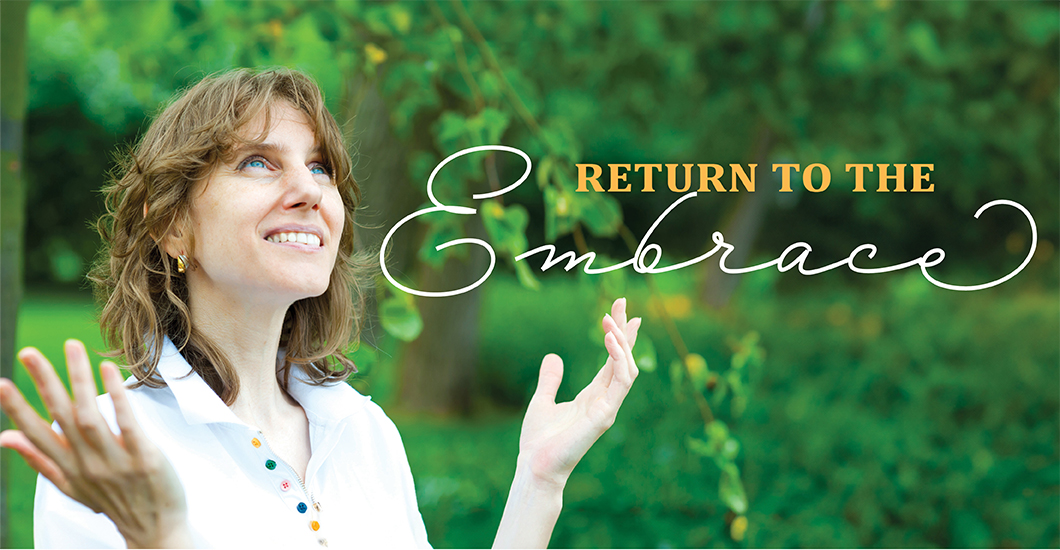Trending Articles
Objection & Answer
Objection: “Women who have been raped should be able to abort their fetuses.”
Answer: Rape is a horrific crime, and both pro-choice and pro-life people agree on that. Justice needs to be rendered toward the rapist. However, will an abortion help the woman?
The results of a 200-participant survey of women who have been victims of sexual assault and had children from it found that it did not help. This is documented in the book called “Victims and Victors: Speaking Out About Their Pregnancies, Abortions, and Children Resulting from Sexual Assault” by Makimaa Sobie Reardon. The study showed that, of those who got pregnant, the women were not the ones interested in getting an abortion. Rather, it was the environment of people telling them to get an abortion. The study found that those women who then went through with an abortion were in counseling more for the abortion than the rape.
Rape was an act of violence done to them, but after the abortion, they felt that they were the ones committing the act of violence. The suffering of guilt in these women is totally ignored by the media, and this is a shame. The testimonies of these women can be analyzed more in-depth through organizations such as “Rachel’s Vineyard” and “Silent No More.” After recognizing the statistical evidence, many ask this question: Why compound evil with evil by killing the child?
Women deserve compassion and help from this terrible injustice, but why not give the child compassion and help as well? We place ourselves in the shoes of the mother and have compassion for her, but we do not also place ourselves in the shoes of the child. The child is as innocent as the mother. Should that baby be killed because of the crime of the father? That baby can be loved by its mother, and the power of love can overcome anything.
Luke Lancaster is the Director of Biblical Apologetics for the website stpeterinstitute.com and writes short articles answering objections to the Catholic Faith. He lives in the Tampa suburbs of Florida.
Related Articles
Anacleto González Flores was born in Mexico in the late 19th century. Inspired by a sermon heard in his childhood, he made daily Mass the most important part of his life. Though he joined the seminary and excelled in academics, on discerning that he was not called into the priesthood, he later entered law school. During the years-long Christian persecution in Mexico, Flores so heroically defended the fundamental rights of Christians that the Holy See awarded him the Cross Pro Ecclesia et Pontifice for his efforts. As many Mexican Christians courageously gave their lives for their faith, he continued to write against the atrocities and became a prominent leader of the Cristero War. In 1927, he was arrested and cruelly tortured—he was flogged, his feet were cut open with knives, and his shoulder was dislocated. An unfazed Anacleto remained firm in his faith and refused to betray his fellow faithful. As he was shot to death, he openly forgave his killers and died, exclaiming: “I have worked selflessly to defend the cause of Jesus Christ and His Church. You may kill me, but know that this cause will not die with me.” He openly forgave his killers and died, exclaiming: “I die, but God does not die. Long live Christ the King!” After years of living a holy life centered on devotion to the Blessed Sacrament and an exemplary Marian devotion, Flores gave his life to the Lord with three of his fellow faithful. This brave martyr was beatified by Pope Benedict XVI in 2005, and he was declared the patron of the Mexican laity in 2019.
By: Shalom Tidings
MoreSeveral years ago, I participated in the annual meeting of the Academy of Catholic Theology, a group of about fifty theologians dedicated to thinking according to the mind of the Church. Our general topic was the Trinity, and I had been invited to give one of the papers. I chose to focus on the work of Saint Irenaeus, one of the earliest and most important of the fathers of the Church. Irenaeus was born around 125 in the town of Smyrna in Asia Minor. As a young man, he became a disciple of Polycarp who, in turn, had been a student of John the Evangelist. Later in life, Irenaeus journeyed to Rome and eventually to Lyons where he became Bishop after the martyrdom of the previous leader. Irenaeus died around the year 200, most likely as a martyr, though the exact details of his death are lost to history. His theological masterpiece is called Adversus Haereses (Against the Heresies), but it is much more than a refutation of the major objections to Christian faith in his time. It is one of the most impressive expressions of Christian doctrine in the history of the church, easily ranking with the De Trinitate of Saint Augustine and the Summa theologiae of Saint Thomas Aquinas. In my Washington paper, I argued that the master idea in Irenaeus’s theology is that God has no need of anything outside of Himself. I realize that this seems, at first blush, rather discouraging, but if we follow Irenaeus’s lead, we see how, spiritually speaking, it opens up a whole new world. Irenaeus knew all about the pagan gods and goddesses who stood in desperate need of human praise and sacrifice, and he saw that a chief consequence of this theology is that people lived in fear. Since the gods needed us, they were wont to manipulate us to satisfy their desires, and if they were not sufficiently honored, they could (and would) lash out. But the God of the Bible, who is utterly perfect in Himself, has no need of anything at all. Even in His great act of making the universe, He doesn’t require any pre-existing material with which to work; rather (and Irenaeus was the first major Christian theologian to see this), He creates the universe ex nihilo (from nothing). And precisely because He doesn’t need the world, He makes the world in a sheerly generous act of love. Love, as I never tire of repeating, is not primarily a feeling or a sentiment, but instead an act of the will. It is to will the good of the other as other. Well, the God who has no self-interest at all, can only love. From this intuition, the whole theology of Irenaeus flows. God creates the cosmos in an explosion of generosity, giving rise to myriad plants, animals, planets, stars, angels, and human beings, all designed to reflect some aspect of His own splendor. Irenaeus loves to ring the changes on the metaphor of God as artist. Each element of creation is like a color applied to the canvas or a stone in the mosaic, or a note in an overarching harmony. If we can’t appreciate the consonance of the many features of God’s universe, it is only because our minds are too small to take in the Master’s design. And His entire purpose in creating this symphonic order is to allow other realities to participate in His perfection. At the summit of God’s physical creation stands the human being, loved into existence as all things are, but invited to participate even more fully in God’s perfection by loving his Creator in return. The most oft-cited quote from Irenaeus is from the fourth book of the Adversus Haereses, and it runs as follows: “The glory of God is a human being fully alive.” Do you see how this is precisely correlative to the assertion that God needs nothing? The glory of the pagan gods and goddesses was not a human being fully alive, but rather a human being in submission, a human being doing what he’s been commanded to do. But the true God doesn’t play such manipulative games. He finds His joy in willing, in the fullest measure, our good. One of the most beautiful and intriguing of Irenaeus’ ideas is that God functions as a sort of benevolent teacher, gradually educating the human race in the ways of love. He imagined Adam and Eve, not so much as adults endowed with every spiritual and intellectual perfection, but more as children or teenagers, inevitably awkward in their expression of freedom. The long history of salvation is, therefore, God’s patient attempt to train His human creatures to be His friends. All of the covenants, laws, commandments, and rituals of both ancient Israel and the church should be seen in this light: not arbitrary impositions, but the structure that the Father God gives to order His children toward full flourishing. There is much that we can learn from this ancient master of the Christian faith, especially concerning the good news of the God who doesn’t need us!
By: Bishop Robert Barron
MoreQ – How do I know if my love for sports is idolatry? I practice four hours a day, hoping to get a college scholarship, and I think about it all the time, following the professional teams closely. I love God, but He just doesn’t hold my interest like sports do. When does my passion cross the line into idolatry? A – I, too, am passionate about sports. I played baseball in high school and college, and even as a priest, I continue to play Ultimate Frisbee, soccer, and American football. Sports can be “the field of virtue,” as Saint John Paul II once said. But in our modern world, we do often hold sports in very high esteem…perhaps too high. My college baseball coach had a great saying: “Nothing in sports is eternal.” That helped me keep everything in perspective. Winning the championship or losing the game won’t make a bit of difference in eternity. It is meant to be fun, giving us a chance to exercise and practice teamwork, discipline, courage, and fairness—but there are no eternal consequences to an athletic contest. So how do we keep sports in its proper perspective? We look at three things to know if sports (or anything else) has become an idol: First, time. How much time do we spend on it versus how much time do we spend with the Lord? I once challenged a class of teens to spend ten minutes per day in prayer, and one boy told me that was impossible because he played video games. I asked him how much he played, and he told me that he often played eight to eleven hours per day! If a person doesn’t have time for a serious prayer life—fifteen to twenty minutes minimum, every day, because they are spending that time on sports, then it is indeed idolatry. This doesn’t mean that it has to be perfectly equal—if you practice for two hours per day, you don’t necessarily need to pray for two hours per day. But there does need to be enough time in your life to have a solid prayer life. This includes making sure that our sports life does not conflict with Sunday worship. My brother, an excellent ballplayer, once had to miss an important tryout because it was being held on Easter Sunday morning. Whatever we do instead of Sunday Mass becomes our idol! This also includes making time an integral part of our sacrifice for the Lord. Do you have the time to volunteer at your church or a local charity? Do you have enough time to perform your daily duties well (to do your studies to the best of your ability, to do household chores, and to be a good son/daughter and friend)? If sports take up so much time that there is no time to give back to others, then we are out-of-balance. Second, money. How much money do we spend on sports games, equipment, trainers, gym memberships—versus how much money do we give to the church, charities, or the poor? Where we spend our money determines what our priorities are. Again, this isn’t necessarily a perfectly equal ratio—but generosity is a major part of belonging to the Lord, from Whom all good gifts come. Finally, enthusiasm. In America, where I live, American football is our national religion. It amazes me to see grown men sit outside in sub-freezing temperatures at a Green Bay Packers game, with their shirts off and their chests painted team colors, wearing a foam hat in the shape of cheese (it’s a weird tradition!), cheering at the top of their lungs…and many of these same men would be bored in church on Sunday morning, barely mumbling the Mass responses (if they attended at all). What makes you excited? Are you more excited for a sports contest that won’t be remembered in a year or for the challenge and joy of the epic quest for holiness, the chance to advance the Kingdom of God, the battle for souls which has eternal consequences, the pursuit of an eternal victory which will make your trophies pale in comparison? If you find that your enthusiasm for sports is still stronger, consider what Christianity truly is. There is literally nothing more exciting and adventurous on earth than the quest to become a saint. It involves many of the same qualities as a good athlete: self-denial, dedication, and single-minded pursuit of a goal. But our goal has eternal reverberations! Considering these three things—where you spend your time, how you spend your money, and what makes you excited. These can provide valuable insight as to when something has become an idol to us.
By: Father Joseph Gill
MoreWhen a terrible loss led Josh Blakesley into the light, music from his soul became a balm to many bleeding hearts. Growing up in the small town of Alexandria, Josh was a carefree child. He grew up listening to his Dad’s music; two elder sisters with a great music collection was a bonus that nurtured his musical taste. Without professional training or theoretical inputs, in an age with no internet and YouTube, Josh had what he would later call ‘a side entry’ into the world of music. Starting on the drums and simultaneously learning to sing, he was enamored by the likes of Don Henley and Phil Collins, following their legendary works through magazines and books. With his mother, though, Church was a non-negotiable matter. Thanks to her insistence, he went to Mass every Sunday. But he would leave God there and live the rest of his life on a totally different plane. Diving Deeper They met in Spanish class when he was 15, and unlike any other 15-year-old, she took him along to a prayer meeting. This was new and different from anything he had experienced before. Teenagers his age were coming together to worship the Lord. This worship experience was modern and engaging…with music, talks, and skits by people his age! He was intrigued, but he wouldn’t have kept coming back every week if Jenny hadn’t asked him to. Several months later, Jenny was hit by a drunk driver and killed in an accident. Her loss was a huge blow to the entire community. As he struggled with the grief of losing her, it triggered a realization that life here is finite, and there must be purpose in it, a reason that we are living. From that very moment, he began a journey, searching for answers to the questions that fascinated him…‘What is the reason for me? What is the purpose of what I’m doing right now? Why has God put me on this planet? What’s my role while I’m here?’ He started diving more into why we were here on this planet. In realizing that his gifts were from God, and in searching for a purpose in the use of these gifts, he realized that he wanted to give back to God and return the love. A Bolt of Realization He started playing music for Mass and getting involved in the liturgy. As he puts it: “There has been a faith part to my music and a music part to my faith as well. Those are still ingrained. I pray through music a lot”. And it is this experience of prayer that he tries to hand over to his brethren through writing and playing music. The “awesome and overwhelming” experience of leading people into worship and hearing them singing along makes him whisper so often: “The Lord is moving right now, and I don’t have to work.” Bridging the Gap Josh is now a full-time singer, songwriter, producer, music director, husband, and dad. Even while leading the music at Mass every Sunday, Josh knows that Mass can happen without music—what a musician does at Mass doesn’t bring Jesus any greater into the room; He is there regardless. What a musician can do is “elevate the worship of the faithful by bringing some extra beauty through music.” This indeed, is one of his life goals—to try and bridge that gap and bring quality music into the liturgy. But he doesn’t stop there; in addition to adding beauty to the Sacramental experience, he goes another mile to bring God to the people. Right from His Heart As a Catholic musician, Josh writes songs for the Mass and writes from the heart. Sometimes, when it comes out, it might not be out rightly Mass-material, but what comes out is still a tribute to God for the gift of music. He relates that his song Even in This was such an experience right from his heart. The Church community he was part of had just lost a teen, and seeing them go through the pain, the tragedy, and the devastation took him back to his own experience of losing a dear friend in his teenage years. Diving into the pain, he wrote that even in these darkest nights, God is with us. In the ‘valleys of pain’, in the ‘shattered, broken things’, in the ' hurt you cannot hide’ and the ‘fear you cannot fight’, he reassures his listeners that though you cannot see God, “You are not alone.” This is one message Josh wants to repeat to the world: “God is moving with you.”
By: Josh Blakesley
MoreA familiar picture, a routine job, but that day, something different caught her eye. On the corner of my bathroom vanity is an old photocopy of a drawing (original source long forgotten) in a clear, plastic frame. Years ago, one of my now adult sons had carefully framed it and set it on his dresser. It sat there until he grew up. When I re-homed, I transferred it to the corner of my bathroom vanity. On Saturdays, when I clean the bathrooms, I always lift the little frame and wipe the surfaces beneath it. Occasionally, I’ll swipe my cloth over the smooth sides of the frame to wash away any settled dust and invisible germs. But, like so many other familiar things, I rarely take notice of the image inside the old childish frame. One particular day, though, this picture caught me by surprise. I eagerly focused on the eyes of the two figures in the image—a child and Jesus. The expression on the little child’s face was one of loving adoration. The innocence of child-like wonder and unrestrained admiration resonated in his soft, penciled eyes. The child’s tender, upward gaze seemed not to notice the horror of the crown of thorns atop Christ’s head or the Cross crushing His right shoulder. In contrast, Jesus’s eyes peered down from beneath heavy lids and shadowed creases. The artist had managed to skilfully veil the depth of pain behind those eyes. Drawing Parallels I recalled a memory from my early years as a mother. I was big with baby number three. In the last days of pregnancy, I was attempting to soothe my aching body with a warm bath. I bounded my two young sons. They were full of energy and chatter as they moved around the tub and peppered me with questions. My privacy and physical discomfort were of no consequence to their boyish minds. I remembered the tears that rolled down my face as I tried, in vain, to get my sons to understand that I was hurting and in need of some space. But, they were simply little children who saw me as their ever-present mama, the one who kissed away boo-boos and always stood at the ready to hear their stories and meet their needs. They lacked understanding of the physical sacrifices that child-bearing demands. And I was too familiar to be seen by them as someone other than their strong, steadfast mother. I considered the parallels. Like my little boys, the pictured child saw Our Lord through his individual, human lens of experiences. He saw a loving Teacher, a faithful Friend, and a steadfast Guide. Christ obscured the intensity of His Passion—out of mercy and met the child’s gaze with tenderness and compassion. The Lord knew that the child was not ready to see the full measure of the suffering that his salvation had cost. Lost in the Darkness Our familiarity with things, people, and situations can make us blind to reality. We most often see through the clouded tunnel of old experiences and expectations. With so many stimuli competing for our attention, it is reasonable that we filter out the world around us. But, like the child in the picture and my own little ones, we tend to see what we want to see and ignore that which does not correspond with our perspectives. I believe that Jesus wants to heal our blindness. Like the blind man in the Bible who, on being touched by Jesus, said: “I see men, but they look like trees, walking” (Mark 8:22-26), most of us are not ready to see the ordinary with divine eyes immediately. Our eyes are still too accustomed to the darkness of sin, too attached to our self-reliance, too complacent in our worship, and too proud of our human endeavors. The Full Picture The price paid for our salvation on Calvary was not an easy price. It was sacrificial. Yet, like the child in the picture on my bathroom vanity, we focus only on Jesus’s tenderness and mercy. And because He is merciful, Jesus doesn’t rush; He allows us to come to a gradual maturity of faith. However, it is good to ask ourselves every once in a while if we sincerely render efforts towards spiritual maturity. Christ did not give His life so that we might remain in the fantasy world of continued blessings. He gave His life so that we might have eternal life, and we need to open our eyes to see that He bought it at the price of His blood. As we journey through Lent and especially Holy Week, we need to allow Christ to open our eyes little by little, surrender ourselves to His will, allow Him to remove our idols one by one, and strip away that which has become familiar in our lives so that we may begin to see the old blessings of worship, family, and holiness with new eyes of deep, abiding faith.
By: Tara K. E. Brelinsky
MoreI remember a time in my ministry when I had felt a fellow minister distancing himself from me for no apparent reason. It seemed like he was struggling, but he wouldn’t share it with me. One Lenten day, burdened by this thought, I stood in my office and cried out to the Lord in my heart: “Jesus, I feel so left out of this person’s life.” Immediately, I heard Jesus respond with these sad words: “I know how you feel. It happens to Me every day.” Wow! I felt my own heart pierced, and tears flooded my eyes. I knew these words were a treasure. I continued for months to unpack that grace. Since my Baptism in the Holy Spirit twenty years ago, I had considered myself to have a deep personal relationship with Jesus. But this Word from my precious Savior and Lord opened a whole new insight into Jesus’ Heart. “Yes, Jesus, so many people forget You, don’t they? And me too—how often am I going about my tasks, forgetting to bring my problems and thoughts to You? All the while, You wait for me to turn back to You, who looks on me with such love.” In my prayer, I kept processing those words. “I know better now how You feel when someone rejects You, accuses or blames You, or does not talk to You for days or even years.” I would more consciously take my own sorrows to Jesus and tell Him: “Jesus, my Beloved, You feel this same sadness that I am feeling. I offer my little hurt to console You for so many people, including myself, who fail to console You.” I saw in a new way my favorite image, Jesus with His Sacred Heart’s rays of love flowing out, lamenting to Saint Margaret Mary: “Look at My Heart that loves people so much—but receives so little love in return.” Truly, Jesus gives me little trials daily so I can have a tiny taste of what He endured for us. I will always remember that moment of agony that brought me closer to the amazing, tender, long-suffering love of our dear Lord Jesus.
By: Sister Jane M. Abeln SMIC
MoreA repeated whisper from above, numerous failed attempts…all solved by a children’s story! There is a wonderful tale by Hans Christian Andersen entitled The Steadfast Tin Soldier that I have taken immense pleasure in reading aloud to my daughter, and she, in listening to it. This one-legged tin soldier’s brief existence is marked by tribulation after tribulation. From falling from several storeys to nearly drowning to being swallowed by a fish like Jonah, the handicapped fighter comes to understand suffering quite quickly. Through it all, though, he does not hesitate, falter, or flinch. Oh, to be like the tin soldier! Discovering the Reason Literalists and pessimists might attribute his steadfastness to the fact that he is made of tin. Those who appreciate metaphor will say it is because he has a deep knowledge of his identity. He is a soldier, and soldiers do not let fear or anything, for that matter, steer them from their course. The trials wash over the tin soldier, but he remains unchanged. At times, he admits that if he were not a soldier, he would do such and such—like shed tears—but those things he did not do, for it would not be in line with who he was. In the end, he is cast into a stove where, reminiscent of Saint Joan of Arc, he is engulfed in flames. His remains are later found by the housemaid, reduced to—or one might say, transformed into—a perfectly shaped tin heart. Yes, the fires that he so resolutely endured molded him into love! Perhaps, all that is required to become steadfast is to know one's identity? The question then is, what is our identity? I am, and you are, too, a daughter (or son) of the King of the Universe. If only we know and never cease to claim this identity, we too can be steadfast on the journey toward becoming like Love Himself. If we go about our days knowing that we are princesses and princes gallivanting about our Father's castle, what would we fear? What would make us quake, turn back, or crumble? No falls or floods or flames could make us step aside from the path toward sainthood that has been so lovingly laid before us. We are beloved children of God, destined to become saints if we only stay the course. The trials will become joys because they will not pull us from our path but, if endured well, will ultimately transform us into that which we long to be! Our hope and joy can always remain, for even if all about us is hardship, we are still beloved, chosen, and made to be with the Father in Heaven for all eternity. Sorrows into Joy! When the Angel Gabriel, on his mission to receive Mary’s fiat, sees Mary's fear, he tells her: “Do not be afraid, for you have found favor with God.” (Luke 1:30) What glorious news! And how glorious that we, too, have found favor with God! He made us, loves us, and desires for us to be with Him always. So, we, like Mary, need not be afraid, no matter what difficulty comes our way. Mary steadfastly accepted all that came her way, knowing that His Providence is perfect and that the salvation of all mankind was at hand. She stood at the foot of the Cross in the moments of her greatest suffering and remained. In the end, though Mary’s heart was pierced by many swords, she was assumed into Heaven and crowned Queen of Heaven and Earth, to be with Love forever. Her steadfastness and loving endurance through suffering paved the way to her Queenship. Yes, the sorrow of the Pieta became the glory of the Assumption. The martyrdom of so many holy men and women made them a part of the Heavenly host praising the Lord forevermore. Like our Mother and the Saints, may we accept the grace to be steadfast, standing tall amidst sorrow, flames, and all other circumstances that try to divert us from the Lord’s open arms. May we be firmly rooted in our identity as children made in the Father's image. May we, like the renowned poet Tennyson once wrote: “Be strong in will to strive, to seek, to find, and not to yield!” May we, after it all, become like Love.
By: Molly Farinholt
MoreKeep your ears open to nature's faintest impulses…God is speaking to you all the time. God is constantly trying to communicate His message of love to us—in small things, in big things, in everything. Sometimes through the busyness of life, we can often miss what He is trying to say to us, both in the moment and after. Our loving God yearns for us to come to Him in the silence of our hearts. It is there that we can truly encounter Him and begin to grow in our relationship with Him—by listening to the “good teacher” (John 13:13). Saint Teresa of Calcutta taught: “God speaks in the silence of our hearts.” Scripture teaches us too, that it was only after the strong wind, earthquake, and fire had disappeared that Elijah was able to hear and understand God through the “still small voice” (1 Kings 19:9-18). The Power that Moves Us Recently, I went with my niece to a beach in North Wales; we wanted to fly a kite together. As the sea was going out, we unravelled the string on the sand. I threw the kite in the air as my niece set off running as fast as she could, holding the handle. The beach was partially enclosed by cliffs, so in spite of a strong wind on the waves, the kite did not stay in the air very long. She set off running again, this time even faster, and we tried again and again. After a few attempts, we realised that this wasn’t working. I looked around and saw that to the top part of the cliffs, there was an open field and a lot of land. So together, we climbed higher. As we began to unravel the string again, the kite began to move; my niece tightly held on to the handle. Before we knew it, the kite was fully extended and flying so high. The beauty of it this time was that we were both able to really enjoy this moment together with minimal effort. The key was the wind, but the power of the soaring kite was actualized in getting to a place where the wind could really blow. The joy, laughter, fun, and love shared in that moment were priceless. Time seemed to stand still. Learning to Fly High Later as I prayed, these memories came back to me, and I felt I was being taught powerful lessons in faith, specifically about prayer. In life, we can try to do things with our own strength. There is something in our fallen human nature about wanting to be in control. It is like being at the steering wheel in a car. We can trust God and allow Him to guide us, or we can exercise our free will. God allows us to take hold of the wheel if and when we choose to. But as we journey with Him, we see in fact, that He desires for us to not try and do it all on our own. He doesn’t want to do it all by Himself either. God desires for us to do everything—through Him, with Him, and in Him. The very act of praying is a gift in itself, but it requires our cooperation. It is a response to His call, but the choice to respond is ours. Saint Augustine powerfully teaches us to “acknowledge our voice in Him and His in us” (CCC 2616). This is not just true for prayer but for everything in life. True, Jesus sometimes allows us to labor “all night” and “catch nothing.” But this brings us to the realisation that it is only through His guidance that we will achieve what we desire. And infinitely more when we open our hearts to listen to Him. (Luke 5:1-11) If we are to fly high, we need the wind of the Holy Spirit, the breath of God, which transforms and lifts us up (John 20:22). Wasn’t it the wind of the Holy Spirit that descended upon the fearful disciples in the upper room at Pentecost and transformed them into faith-filled, fearless preachers and witnesses of Christ (Acts 1-2)? Seeking with a Whole Heart It is essential to recognize that faith is a gift that we must hold on tight to (1 Corinthians 12:4-11). Otherwise, we can become tangled up in difficult situations in the world that, without His grace, can be impossible for us to be free of. We must continue to reach higher heights through the power of the Holy Spirit—to “seek the Lord and live” (Amos 5:4, 6). Saint Paul exhorts us to “Rejoice always, pray constantly, give thanks in all circumstances; for this is the will of God in Christ Jesus for you.” (1 Thessalonians 5:16-18) Therefore, the call is for each believer to enter deeper into prayer by creating the space for silence, removing all distractions and blocks, and then allowing the wind of the Holy Spirit to really blow and move in our lives. God Himself invites us to this encounter with the promise that He will answer: “Call to me, and I will answer you and will tell you great and hidden things which you have not known.” (Jeremiah 33:3)
By: Sean Booth
MoreWould my life ever return to normal? How can I possibly continue my work? Brooding over these, a terrible solution popped into my head… I was finding life extremely stressful. In my fifth year at college, the onset of bipolar disorder was hindering my efforts to complete my teaching degree. I had no diagnosis yet, but I was plagued with insomnia, and I looked frazzled and unkempt, which impeded my prospects of employment as a teacher. Since I had strong natural tendencies toward perfectionism, I felt so ashamed and feared that I was letting everyone down. I spiraled into anger, despondency, and depression. People were concerned about my decline and tried to help. I was even sent to the hospital by ambulance from the school, but doctors could find nothing wrong except elevated blood pressure. I prayed but found no consolation. Even Easter Mass—my favorite time—didn’t break the vicious cycle. Why wouldn’t Jesus help me? I felt so angry with Him. Finally, I just stopped praying. As this continued, day after day, month after month, I didn’t know what to do. Would my life ever return to normal? It seemed unlikely. As graduation approached, my fear increased. Teaching is a tough job with few breaks, and the students would need me to remain level-headed while dealing with their many needs and providing a good learning environment. How could I possibly do this in my current state? A terrible solution popped into my head: “You should just kill yourself.” Instead of casting off that thought and sending it straight back to hell where it belonged, I let it sit. It seemed like a simple, logical answer to my dilemma. I just wanted to be numb instead of under constant attack. To my utter regret, I chose despair. But, in what I expected to be my last moments, I thought of my family and the type of person I had once been. In genuine remorse, I raised my head to the heavens and said: “I’m so sorry, Jesus. Sorry for everything. Just give me what I deserve.” I thought those would be the last words I would utter in this life. But God had other plans. Listening to the Divine My mother was, by providence, praying the Divine Mercy Chaplet at that very moment. Suddenly, she heard the words loud and clear in her heart “Go find Ellen.” She obediently set aside her rosary beads and found me on the floor of the garage. She caught on quickly, exclaiming in horror: “What are you doing?!” while she pulled me into the house. My parents were heartbroken. There’s no rulebook for times such as these, but they decided to take me to Mass. I was totally broken, and I needed a Savior more than ever before. I longed for a come-to-Jesus moment, but I was convinced that I was the last person in the world He would ever want to see. I wanted to believe that Jesus is my Shepherd and would come after His lost sheep, but it was hard because nothing had changed. I was still consumed by intense self-hatred, oppressed by darkness. It was almost physically painful. During the preparation of the gifts, I broke down in tears. I had not cried for a really long time, but once I started, I couldn’t stop. I was at the end of my own strength, with no idea where to go next. But as I wept, the weight slowly lifted, and I felt myself enfolded in His Divine Mercy. I didn’t deserve it, but He gave me the gift of Himself, and I knew that He loved me the same at my lowest point as much as He loved me at my highest point. In Pursuit of Love In the days to come, I could barely face God, but He kept showing up and pursuing me in the little things. I re-established communication with Jesus with the aid of a Divine Mercy picture in our living room. I tried to talk, mostly complaining about the struggle and then feeling bad about it in light of the recent rescue. Weirdly, I thought I could hear a tender voice whispering: “Did you really think I would leave you to die? I love you. I will never forsake you. I promise to never leave you. All is forgiven. Trust in my mercy.” I wanted to believe this, but I couldn’t trust that it was true. I was growing discouraged at the walls I was erecting, but I kept chatting with Jesus: “How do I learn to trust You?” The answer surprised me. Where do you go when you feel no hope but have to go on living? When you feel totally unlovable, too proud to accept anything yet desperately wanting to be humble? In other words, where do you want to go when you want a full reconciliation with the Father, Son, and Holy Spirit but are too scared and disbelieving of a loving reception to find your way home? The answer is the Blessed Virgin Mary, Mother of God, and Queen of Heaven. While I was learning to trust, my awkward attempts did not displease Jesus. He was calling me closer, closer to His Sacred Heart, through His Blessed Mother. I fell in love with Him and His faithfulness. I could admit everything to Mary. Although I feared that I could not keep my promise to my earthly mother because, on my own, I was still barely mustering the will to live, my mother inspired me to consecrate my life to Mary, trusting that she would help me get through this. I didn’t know much about what that meant, but 33 Days to Morning Glory and Consoling the Heart of Jesus by Father Michael E. Gaitley, MIC, helped me understand. The Blessed Mother is always willing to be our intercessor, and she will never turn down a request from a child wanting to return to Jesus. As I went through the consecration, I resolved never to attempt suicide again with the words: “No matter what happens, I will not quit.” Meanwhile, I started taking long walks on the beach while I talked with God the Father and meditated on the parable of the prodigal son. I tried to put myself in the shoes of the prodigal son, but it took me some time to get close to God the Father. First, I imagined Him at a distance, then walking toward me. Another day, I pictured Him running towards me even though it made Him look ridiculous to His friends and neighbors. Finally, the day came when I could picture myself in the arms of the Father, then being welcomed not just to His home but to my seat at the family table. As I envisaged Him pulling out a chair for me, I was no longer a headstrong young woman but a 10-year-old girl with ridiculous glasses and a bob haircut. When I accepted the Father’s love for me, I became like a little child again, living in the present moment and trusting Him completely. I fell in love with God and His faithfulness. My Good Shepherd has saved me from the prison of fear and anger, continuing to lead me along the safe path and carrying me when I falter. Now, I want to share my story so that everyone can know God’s goodness and love. His Sacred Heart is welling up with tender love and mercy just for you. He wants to love you lavishly, and I encourage you to welcome Him without fear. He will never abandon you or let you down. Step into His light and come home.
By: Ellen Wilson
MoreI lost my iPhone a year ago. At first, it felt like a limb was amputated. I had owned one for thirteen years, and it was like an extension of myself. In the beginning days, I used the “new iPhone” like a phone, but it soon became an alarm clock, a calculator, the news, weather, banking, and much more…and then…it was gone. As I was forced into detox, I had many pressing problems. My shopping lists now needed to be written on paper. An alarm clock was purchased, and a calculator. I missed the daily ‘ping’ of messages and the scramble to open them (and the feeling of being wanted). But I was sensing the peace of not having this little piece of metal dominating my life. I hadn’t realized how demanding and controlling the device was until it was gone. The world didn’t stop. I just had to relearn new-old ways of interacting with the world, like talking to people face to face and making plans for events. I wasn’t in a hurry to replace it. In fact, its demise led to a welcome revolution in my life. I started experimenting with minimal media in my life. No newspapers, magazines, radio, television, or phone. I kept an iPad for work emails, selected YouTube videos on the weekend, and a few independent news pages. It was an experiment but one that has left me feeling calm and peaceful, enabling me to use my time for prayer and Scripture. I could now cling to God more easily, who is “the same, yesterday, and today and forever” (Hebrews 13:8). The First Commandment asks us to “love the Lord your God with all Your heart and mind and soul and love your neighbor as yourself” (Mark 12:30-31). I wonder how we can do that when our mind is on our phones for most of the day! Do we truly love God with our minds? Romans 12:2 says: “Do not conform to the pattern of this world but be transformed by the renewing of your mind.” I challenge you to abstain from the media, even for a little while and even for a little bit. Feel that transforming difference in your life. Only when we give ourselves a break will we be able to love the Lord our God with renewed minds.
By: Jacinta Heley
MoreLatest Articles
If I hadn't gone through that darkness, I wouldn't be where I am today. My parents really wanted to have a family, but my mom wasn't able to get pregnant until she was 40. I was their miracle baby, born on her birthday, exactly one year after she completed a special Novena in petition for a child. I was gifted with a baby brother one year later. My family was nominally Catholic; we would go to Sunday Mass and receive the Sacraments, but there was nothing more. When I was about 11 or 12, my parents turned away from the Church and my faith life took an incredibly long pause. Writhing Agony Teenage years were packed with pressure, a lot of which I put on myself. I’d compare myself to other girls; I wasn't happy with my appearance. I was highly self-conscious and anxious. Though I excelled academically, I had a difficult time in school because I was very ambitious. I wanted to get ahead—show people that I could be successful and intelligent. We didn't have much money as a family, so I figured that studying well and getting a good job was going to solve it all. Instead, I got sadder and sadder. I would go for sports and celebrations, but I would wake up the next day and feel all empty. I had a few good friends, but they too had their own struggles. I remember trying to support them and ending up questioning the why of all the suffering around me. I was lost, and this sadness made me close-up and curl into myself. When I was about 15, I fell into the habit of self-harm; as I later realized, at that age, I didn't have the maturity or the ability to speak about what I was feeling. As pressure intensified, I gave in to suicidal thoughts, multiple times. During one hospitalization incident, one of the doctors saw me in such agony and said: “Do you believe in God? Do you believe in something after death?” I thought it was the strangest question to ask, but that night, I remembered reflecting on it. That's when I cried out to God for help: “God, if you exist, please help me. I want to live—I'd like to spend my life doing good, but I'm not even capable of loving myself. Whatever I do, everything ends in burnout if I don't have a meaning for all of it.” A Hand of Help I started to talk to Mother Mary, hoping that maybe she could understand and help me. Shortly after, my mother’s friend invited me to go on a pilgrimage to Međugorje. I didn’t really want to, but I accepted the invitation, more for curiosity to see a new country and nice weather. Surrounded by people who were praying the Rosary, fasting, walking up mountains, and going to Mass, I felt out of place but at the same time, I was also slightly intrigued. It was the time of the Catholic Youth Festival, and there were around 60,000 young people there, attending Mass and Adoration, praying the Rosary every day; not because they were forced to, but joyfully, from pure desire. I wondered if these people had perfect families which made it really easy for them to believe, clap, dance, and all of that. Truth be told, I craved that joy! While we were on the pilgrimage, we listened to the testimonies of girls and boys in a Cenacolo Community nearby, and that really changed things for me. In 1983, an Italian nun founded the Cenacolo Community to help young people whose lives had taken a wrong turn. Now, the organization can be found in many countries worldwide. I listened to the story of a girl from Scotland who had drug problems; she had also attempted to take her own life. I thought to myself: “If she can live that happily, if she can come out of all that pain and suffering and genuinely believe in God, maybe there's something in that for me as well.” Another great grace that I received when I was in Međugorje was that I went for confession for the first time in many years. I did not know what to expect but going to confession and finally saying out loud to God all of the things that had hurt me, all that I had done to hurt others and myself, was an enormous weight off my shoulders. I just felt peace, and I felt clean enough to make a fresh start. I came back touched and started University in Ireland, but sans adequate support, I ended up in the hospital again. Finding Way Realizing that I needed help, I went back to Italy and became a part of a Cenacolo Community. It wasn't easy. Everything was new—the language, prayer, different personalities, cultures—but there was a truth in it. Nobody was trying to convince me of anything; everyone was living their life in prayer, work, and true friendship, and it was healing them. They were living peace and joy, and it wasn't made up but real. I was with them all day, every day—I saw it. I wanted that! What really helped me those days was Adoration. I don't know how many times I just cried in front of the Blessed Sacrament. A therapist wasn’t speaking back to me, no one was trying to give me any medication, it just felt like I was being cleansed. Even in the community, there was nothing particularly special, except for God. Another thing that really helped me get out of my depression was that I started looking to serve others. As long as I kept looking at my own self, my own wounds and problems, I was just digging myself into a bigger hole. The community life forced me to come out of myself, look to others, and try to give them hope, the hope that I was finding in Christ. It helped me so much when other young people would come to the community, young girls who had problems similar to mine or sometimes even worse. I looked after them, tried to be an older sister, and sometimes even a mother. I started to think about what my mother would have experienced with me when I was hurting myself or when I was unhappy. There's often a certain sense of helplessness, but with faith, even when you can't help someone with your words, you can do so on your knees. I've seen the change in so many girls and in my own life from prayer. It's not something mystical or something I could explain theologically, but faithfulness to the Rosary, Prayer, and Sacraments has changed my life and so many other lives, and it has given us a new will to live. Passing it on I returned to Ireland to pursue a career in nursing; in fact, more than a career, I felt deeply that it's how I wanted to spend my life. I'm now living with young people, some of whom are like me when I was their age—struggling with self-harm, depression, anxiety, substance abuse, or impurity. I feel that it’s important to tell them what God did in my life, so sometimes during lunch, I tell them that I wouldn't really be able to do this job, see all the suffering and pain if I didn't believe that there was something more to life than just death after illness. People often tell me: “Oh, your name is Joy, it suits you so much; you're so happy and smiley.” I laugh inside: “If you only knew where that came from!” My joy is one that arose from suffering; that's why it's a true joy. It lasts even when there's pain. And I want the young people to have the same joy because it's not just mine, but it's a joy that comes from God, so everyone can also experience it. I just want to be able to share this infinite joy of God so that others can know that you can go through pain, misery, and difficulties and still come out of it, grateful and joyful to our Father.
By: Joy Byrne
MoreMartin de Porres was born in 16th-century Peru; he grew up facing the stigmas of both his mixed race and illegitimacy. After a barber-medical apprenticeship in his young years, he joined the Dominicans as a ‘lay helper’ and continued his barber work in the monastery. One day, Brother Francis Velasco Carabantes approached Martin, desiring to talk to this man whom people were already starting to believe was saintly. Martin was busy with his barber work; he absent-mindedly grabbed this novice and placed him in the barber’s chair. Brother Francis had no inclination to have his head shaved; he disliked the hairstyle that the Dominicans used. Before he could resist, Martin had finished his job, and Brother Francis was angry beyond expression. He started to shout, calling Martin all sorts of curse words. Martin was lost in prayer, and by the time he noticed that this novice was shouting, one of the rectors had seen the commotion and was scolding Brother Francis, who was severely punished and sent away. Martin, once he came to realize what had happened, went to the rector with all possible excuses. He begged forgiveness for this person who had verbally abused him, trying even to explain away the curse words used. Finally, he told the rector: “Everyone knows what a sinner I am.” The rector, who was aware of Martin’s saintly life, gave in to his request and forgave Brother Francis. Not satisfied with this, Brother Martin even sent fresh fruit, which was a rare delicacy in the monastery, to Brother Francis. How many times have we rejoiced in the ‘just’ punishments that our transgressors received? Let us pray to Saint Martin for the virtue of humility, to forgive and show the other cheek, as Jesus taught us to do.
By: Shalom Tidings
MoreAnacleto González Flores was born in Mexico in the late 19th century. Inspired by a sermon heard in his childhood, he made daily Mass the most important part of his life. Though he joined the seminary and excelled in academics, on discerning that he was not called into the priesthood, he later entered law school. During the years-long Christian persecution in Mexico, Flores so heroically defended the fundamental rights of Christians that the Holy See awarded him the Cross Pro Ecclesia et Pontifice for his efforts. As many Mexican Christians courageously gave their lives for their faith, he continued to write against the atrocities and became a prominent leader of the Cristero War. In 1927, he was arrested and cruelly tortured—he was flogged, his feet were cut open with knives, and his shoulder was dislocated. An unfazed Anacleto remained firm in his faith and refused to betray his fellow faithful. As he was shot to death, he openly forgave his killers and died, exclaiming: “I have worked selflessly to defend the cause of Jesus Christ and His Church. You may kill me, but know that this cause will not die with me.” He openly forgave his killers and died, exclaiming: “I die, but God does not die. Long live Christ the King!” After years of living a holy life centered on devotion to the Blessed Sacrament and an exemplary Marian devotion, Flores gave his life to the Lord with three of his fellow faithful. This brave martyr was beatified by Pope Benedict XVI in 2005, and he was declared the patron of the Mexican laity in 2019.
By: Shalom Tidings
MoreSeveral years ago, I participated in the annual meeting of the Academy of Catholic Theology, a group of about fifty theologians dedicated to thinking according to the mind of the Church. Our general topic was the Trinity, and I had been invited to give one of the papers. I chose to focus on the work of Saint Irenaeus, one of the earliest and most important of the fathers of the Church. Irenaeus was born around 125 in the town of Smyrna in Asia Minor. As a young man, he became a disciple of Polycarp who, in turn, had been a student of John the Evangelist. Later in life, Irenaeus journeyed to Rome and eventually to Lyons where he became Bishop after the martyrdom of the previous leader. Irenaeus died around the year 200, most likely as a martyr, though the exact details of his death are lost to history. His theological masterpiece is called Adversus Haereses (Against the Heresies), but it is much more than a refutation of the major objections to Christian faith in his time. It is one of the most impressive expressions of Christian doctrine in the history of the church, easily ranking with the De Trinitate of Saint Augustine and the Summa theologiae of Saint Thomas Aquinas. In my Washington paper, I argued that the master idea in Irenaeus’s theology is that God has no need of anything outside of Himself. I realize that this seems, at first blush, rather discouraging, but if we follow Irenaeus’s lead, we see how, spiritually speaking, it opens up a whole new world. Irenaeus knew all about the pagan gods and goddesses who stood in desperate need of human praise and sacrifice, and he saw that a chief consequence of this theology is that people lived in fear. Since the gods needed us, they were wont to manipulate us to satisfy their desires, and if they were not sufficiently honored, they could (and would) lash out. But the God of the Bible, who is utterly perfect in Himself, has no need of anything at all. Even in His great act of making the universe, He doesn’t require any pre-existing material with which to work; rather (and Irenaeus was the first major Christian theologian to see this), He creates the universe ex nihilo (from nothing). And precisely because He doesn’t need the world, He makes the world in a sheerly generous act of love. Love, as I never tire of repeating, is not primarily a feeling or a sentiment, but instead an act of the will. It is to will the good of the other as other. Well, the God who has no self-interest at all, can only love. From this intuition, the whole theology of Irenaeus flows. God creates the cosmos in an explosion of generosity, giving rise to myriad plants, animals, planets, stars, angels, and human beings, all designed to reflect some aspect of His own splendor. Irenaeus loves to ring the changes on the metaphor of God as artist. Each element of creation is like a color applied to the canvas or a stone in the mosaic, or a note in an overarching harmony. If we can’t appreciate the consonance of the many features of God’s universe, it is only because our minds are too small to take in the Master’s design. And His entire purpose in creating this symphonic order is to allow other realities to participate in His perfection. At the summit of God’s physical creation stands the human being, loved into existence as all things are, but invited to participate even more fully in God’s perfection by loving his Creator in return. The most oft-cited quote from Irenaeus is from the fourth book of the Adversus Haereses, and it runs as follows: “The glory of God is a human being fully alive.” Do you see how this is precisely correlative to the assertion that God needs nothing? The glory of the pagan gods and goddesses was not a human being fully alive, but rather a human being in submission, a human being doing what he’s been commanded to do. But the true God doesn’t play such manipulative games. He finds His joy in willing, in the fullest measure, our good. One of the most beautiful and intriguing of Irenaeus’ ideas is that God functions as a sort of benevolent teacher, gradually educating the human race in the ways of love. He imagined Adam and Eve, not so much as adults endowed with every spiritual and intellectual perfection, but more as children or teenagers, inevitably awkward in their expression of freedom. The long history of salvation is, therefore, God’s patient attempt to train His human creatures to be His friends. All of the covenants, laws, commandments, and rituals of both ancient Israel and the church should be seen in this light: not arbitrary impositions, but the structure that the Father God gives to order His children toward full flourishing. There is much that we can learn from this ancient master of the Christian faith, especially concerning the good news of the God who doesn’t need us!
By: Bishop Robert Barron
More